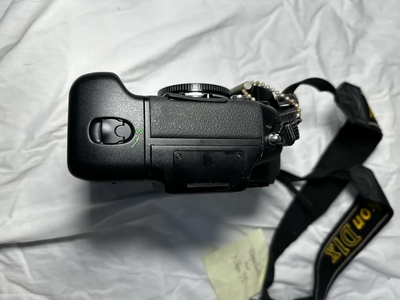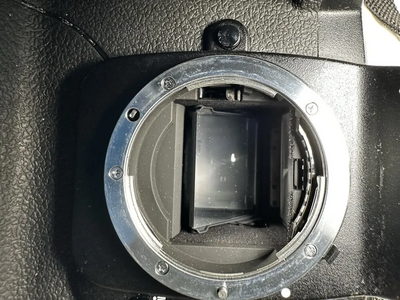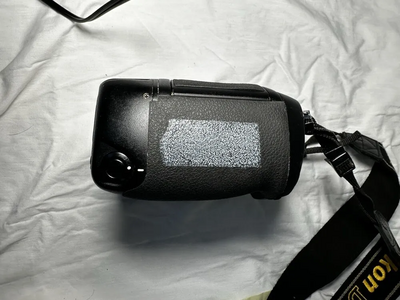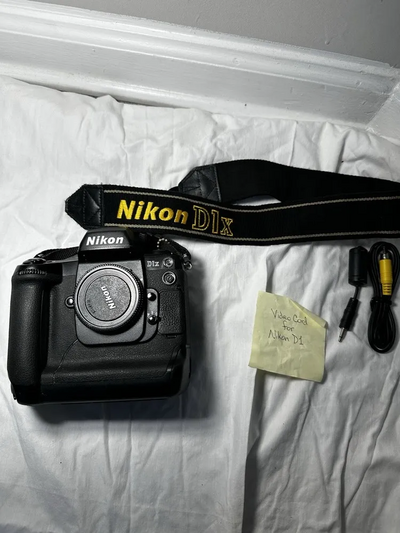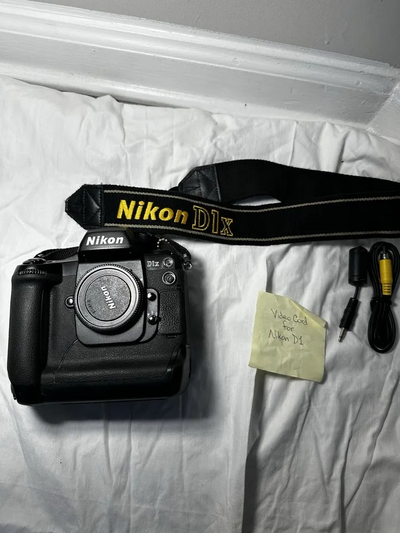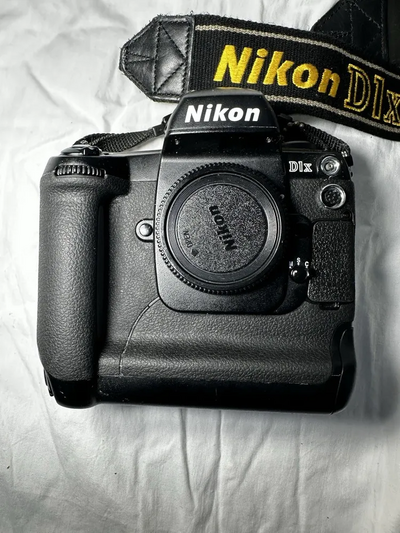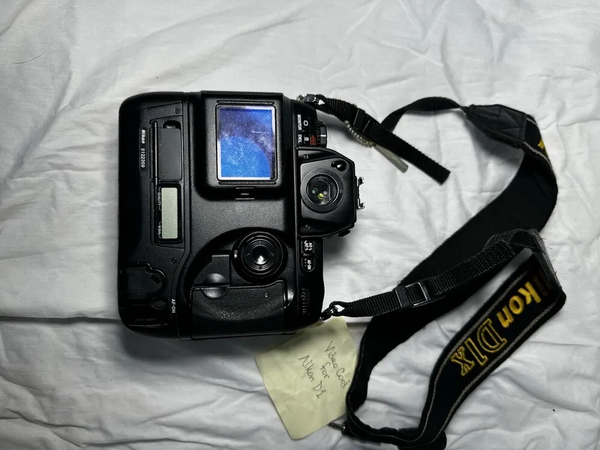
Nikon D1
| Brand | Nikon 1999 |
| Model | 25211 |
| Released Year | 1999 |
| Type | Digital Cameras |
| Series | D |
| Color | Black |
| Optical Zoom | N/a |
| Status | Discontinued |
Quick view
Overview
The Nikon D1, released in 1999, was one of the first professional digital single-lens reflex (DSLR) cameras developed entirely by Nikon. It features a 2.7-megapixel CCD sensor with a 23.7 x 15.6 mm effective imaging area, designed to deliver 3008 x 1960 pixel resolution images. The camera body supports interchangeable Nikon F-mount lenses, ensuring broad lens compatibility for various shooting applications. It supports a shutter speed range from 30 s to 1/16000 s, combined with aperture-priority and manual exposure modes for precise control of exposure. The D1 camera integrates a 2-inch rear LCD for image review, and supports storage via CompactFlash Type I cards. Connectivity options include a PC sync terminal and remote control capability, making it suitable for studio workflows and tethered shooting.
It operates with a Nikon EN-4 rechargeable battery and has an optical viewfinder with approximately 94% frame coverage, providing accurate composition aids. The camera's build includes weather-resistant magnesium alloy construction, enhancing durability. The inclusion of a built-in speedlight with a guide number of approximately 18 (ISO 100) supports basic fill flash needs. Its autofocus system uses Nikon’s Multi-CAM 1300 autofocus module with five focus points for improved focusing accuracy. Lastly, the D1 supports TTL (through-the-lens) metering, improving exposure reliability under varying lighting conditions.
Specifications
| Maximum Aperture | N/a |
| Digital Zoom | N/a |
| Color | Black |
| MPN | 25211 |
| Battery Type | Lithium-Ion |
| Series | Nikon D |
| Type | Digital SLR |
| Maximum Resolution | 2.7 MP |
| Model | Nikon D1 |
| Connectivity | PC Sync terminal, Remote control |
| Optical Zoom | N/a |
| Features | Auto Focus, Body Only, Exposure Compensation |
| Country/Region of Manufacture | Japan |
| Item Weight | 38.8 Oz. |
| Sensor Type | CCD |
| Sensor Size | 23.7 x 15.6 mm |
| Effective Resolution | 2.7 megapixels (3008 x 1960 pixels) |
| Lens Mount | Nikon F-mount |
| Shutter Speed Range | 30s to 1/16000s |
| Exposure Modes | Manual, Aperture Priority |
| ISO Sensitivity | ISO 200 to 1600 |
| Autofocus Points | 5 points (Multi-CAM 1300 module) |
| Viewfinder Coverage | Approx. 94% |
| LCD Screen | 2-inch display |
| Storage Media | CompactFlash Type I |
| Built-in Flash | Yes, GN approx. 18 (ISO 100) |
| Battery | Nikon EN-4 rechargeable battery |
| Body Material | Magnesium alloy, weather-resistant |
| Dimensions | Approx. 153 x 112 x 77 mm |
| Weight | Approx. 1040 g (body only) |
Images
Key Advantages
The Nikon D1 was revolutionary as one of the first professional DSLR cameras designed by Nikon, bringing exceptional control and image quality to professionals transitioning from film. Its native Nikon F-mount compatibility allowed users to leverage an extensive range of established lenses. The camera's shutter speed range of up to 1/16000 s enables capturing fast action and fine control over exposure. The magnesium alloy body provided sturdy, weather-resistant construction enhancing reliability in diverse environments. The autofocus system with multiple focus points improved precision and ease of use. Additionally, the inclusion of a built-in flash and support for external flash units made lighting flexible for various shooting scenarios.
The D1’s use of CompactFlash cards as storage media facilitated quick image transfers and greater storage capacity than earlier digital cameras.
Limitations
The 2.7-megapixel sensor, while adequate at the time, limits the maximum image resolution by modern standards. The camera’s rear LCD screen is relatively small (approximately 2 inches) and lacks live view capabilities common in newer cameras. Its ISO range (200-1600) is narrower compared to modern DSLRs, affecting performance in low-light conditions. The autofocus system, although advanced then, has fewer focus points and slower acquisition speeds than more recent models. Battery life, while sufficient, requires carrying spares for extended shooting due to comparatively modest capacity. Additionally, the size and weight of the camera body are greater than subsequent compact DSLR designs, potentially causing user fatigue during prolonged use.
FAQ
What is the sensor size of the Nikon D1?
The Nikon D1 features a 23.7 x 15.6 mm CCD sensor.
Does the Nikon D1 support interchangeable lenses?
Yes, the Nikon D1 uses the Nikon F-mount, compatible with a wide range of Nikon lenses.
What is the maximum shutter speed on the Nikon D1?
The maximum shutter speed is 1/16000 of a second.
What type of memory card does the Nikon D1 use for storage?
It uses CompactFlash Type I cards for image storage.
Is the Nikon D1 still available new on the market?
No, the Nikon D1 has been discontinued and is no longer produced.
What are the ISO sensitivity options for the Nikon D1?
The ISO sensitivity ranges from 200 to 1600.
Does the Nikon D1 have a built-in flash?
Yes, the Nikon D1 includes a built-in flash with a guide number around 18 at ISO 100.
Disclaimer
The content on is provided for general informational purposes only. We do not guarantee the accuracy, completeness, or reliability of any information, specifications, or visuals presented on the site.
is not responsible for any content, images, or data uploaded or shared by users. Users are solely responsible for the content they submit.
We may include links to third-party websites for convenience. We do not endorse or take responsibility for the content or policies of any external sites.
Use of the site is at your own risk. Always verify critical information independently before making decisions based on content from this website.

